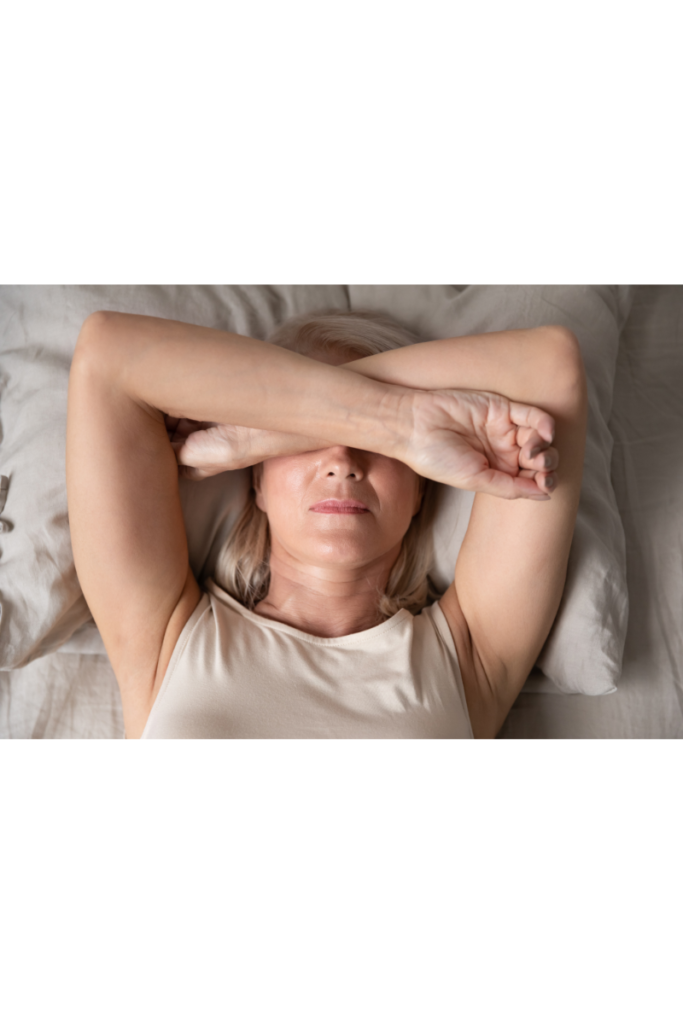
Did you know that your hormones play a large role in your quality of sleep? Women appear to have a greater predisposition to struggling with insomnia.
Hormones are a large part of the story. Both estrogen and progesterone affect sleep quality and quantity. Research shows that periods of hormonal change during a women’s life are also times when we are at an increased risk for sleep disturbances like insomnia, poor sleep quality, and sleep disorders
Once women hit menopause, sleep really becomes challenging. This could mean falling asleep, frequent awakening, and/or early morning awakening increase. And that’s not even taking into account the sleep-wrecking effects of common symptoms like hot flashes and night sweats.
You don’t have to suffer!! There are many ways to help support sleep during this phase.
Some basic sleep hygiene can include
- Keeping your room cool – Aim for a cool room of 18 degrees celsius to get a good night’s rest. When it is too warm, it may be difficult for your body to cool down.
- Make sure your room is dark – The darker the better to get a good nights rest. Blackout Blinds or a sleep mask can be great ways to keep the light out.
- Making sure your room is quiet – A quiet room allows you to fall asleep a bit easier. Sound machines and ear plugs can solutions to help keep the room quiet
- Staying off tablets and screens leading up to bedtime – The screens affect our melatonin production which can make it difficult to fall asleep. Also, staying on screens can make us a bit more stimulated which makes it harder to fall to sleep.
- Avoiding late night snacking – Eating a late night snack can affect our blood sugar. Rises in blood sugar can affect our ability to fall asleep or to stay asleep
Natural ways to help you sleep can include tart cherry juice which is naturally high in melatonin and magnesium. If stress is high, providing support for your adrenals might be helpful to lower cortisol before bed!


